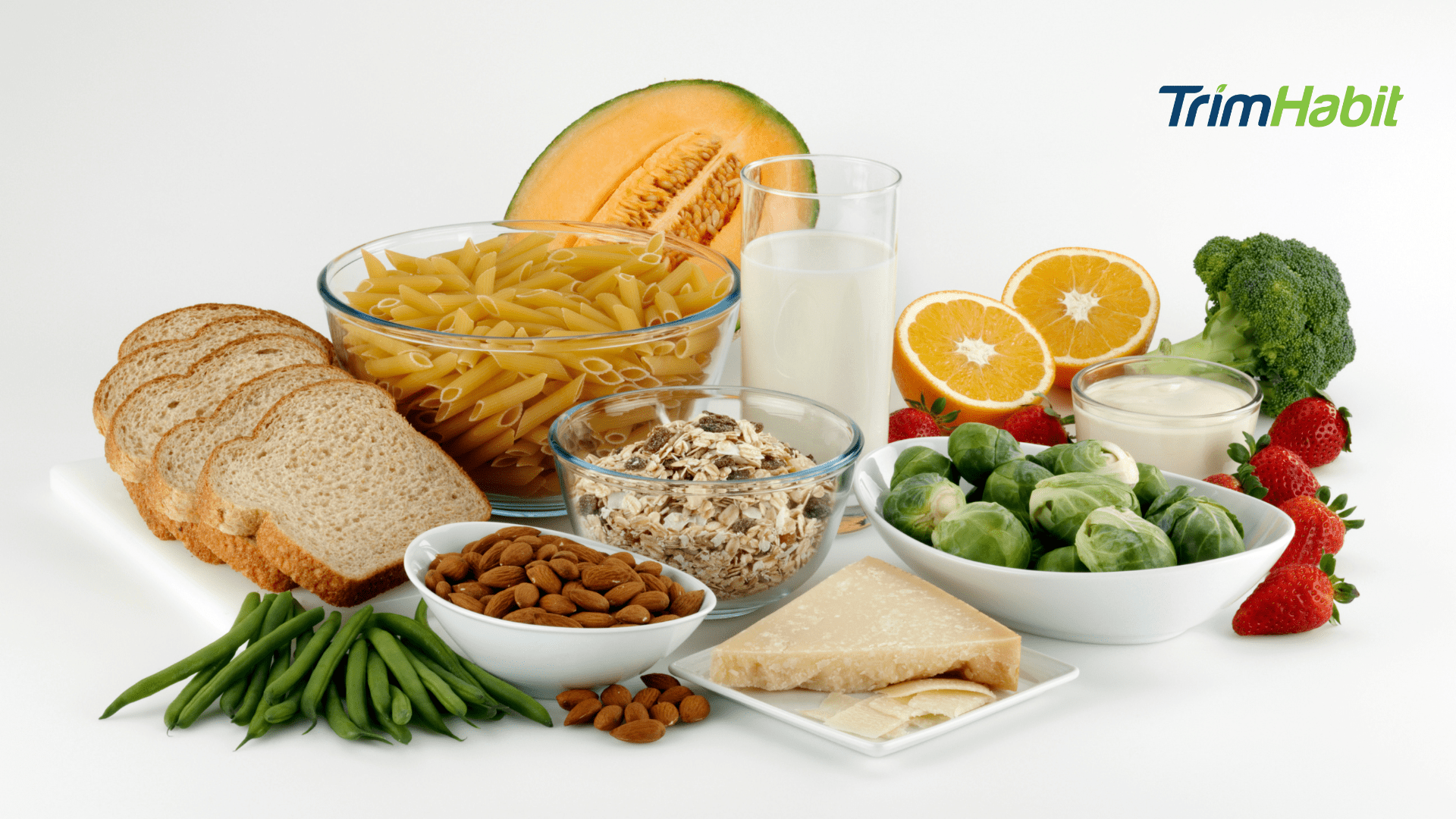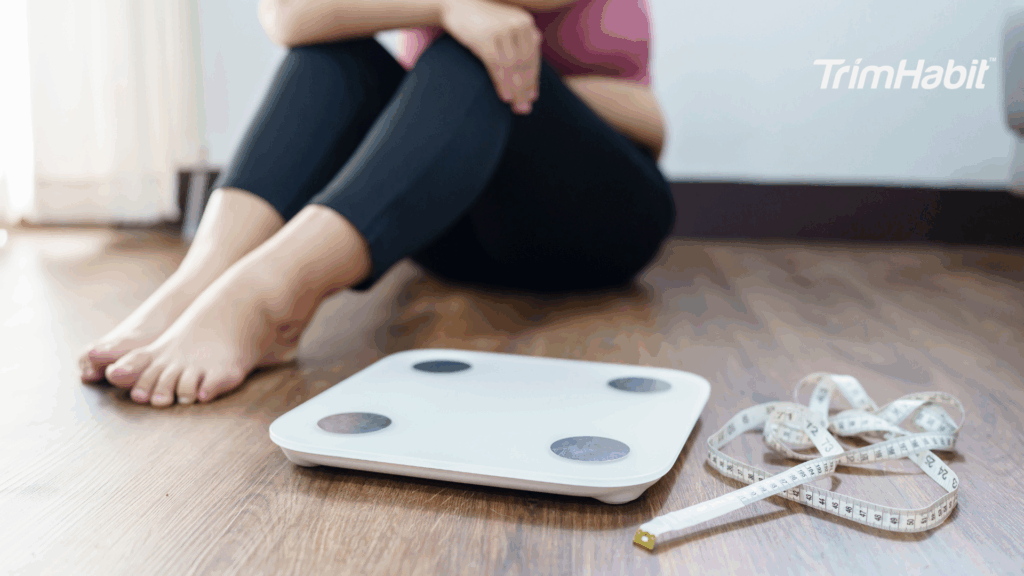If you’re taking Semaglutide, the way you eat can affect how well the medication works. Semaglutide helps control appetite and manage blood sugar, making it easier to lose weight and support metabolic health. To get the best results, it’s important to focus on meals that work with the medication, especially your first meal of the day, since breakfast can help set the tone for appetite control, energy, and digestion.
In this article we’ll break the best high-fiber breakfasts for semaglutide support, what types of fiber are most effective, and provide delicious, easy-to-make breakfast ideas that support your treatment and leave you feeling satisfied and energized. Whether you prefer savory or sweet, quick meals or slow mornings, there’s a high-fiber breakfast here.
What Is Semaglutide?
Semaglutide is a medication used to manage type 2 diabetes and obesity. It belongs to a class of drugs called GLP-1 receptor agonists (glucagon-like peptide-1 receptor agonists)1.
How Semaglutide Works
Semaglutide mimics a natural hormone called GLP-1, which helps regulate blood sugar and appetite. Specifically, it:
- Increases insulin secretion when blood sugar is high
- Lowers the amount of glucagon (a hormone that raises blood sugar)
- Slows the rate at which the stomach empties food
- Reduces appetite by acting on brain receptors
Common Brand Names
- Ozempic – for managing type 2 diabetes
- Wegovy – for chronic weight management
- Rybelsus – an oral form for type 2 diabetes
FDA-Approved Uses
- Improve blood sugar control in adults with type 2 diabetes
- Reduce the risk of major cardiovascular events in adults with type 2 diabetes and established heart disease (Ozempic)
- Help with long-term weight management in adults with obesity or those overweight with weight-related conditions (Wegovy)
Side Effects
Common side effects include:
- Nausea
- Vomiting
- Diarrhea
- Constipation
- Abdominal pain
Serious but less common risks may include:
- Pancreatitis
- Gallbladder issues
- Risk of thyroid tumors (noted in animal studies)
Overview Of High-Fiber
Dietary fiber refers to the parts of plant foods your body can’t digest or absorb. Unlike fats, proteins, or carbohydrates, fiber isn’t broken down and absorbed but passes relatively intact through your stomach, small intestine, and colon2.
Types of Fiber
- Soluble Fiber
- Dissolves in water to form a gel-like substance.
- Helps lower blood cholesterol and glucose levels.
- Sources: Oats, apples, citrus fruits, carrots, barley, psyllium.
- Insoluble Fiber
- Does not dissolve in water.
- Helps move material through your digestive system and adds bulk to stool.
- Sources: Whole wheat flour, wheat bran, nuts, beans, vegetables like cauliflower and potatoes.
Health Benefits of High-Fiber Diets
- Improved Digestive Health: Promotes regular bowel movements, prevents constipation3.
- Heart Health: Reduces cholesterol levels and risk of heart disease4.
- Blood Sugar Control: Slows sugar absorption, helpful for people with diabetes5.
- Weight Management: Increases satiety, making you feel fuller for longer6.
- Colon Health: May reduce the risk of colorectal cancer and diverticulitis7.
Recommended Daily Intake
- Women: 21–25 grams/day
- Men: 30–38 grams/day
(Varies by age and caloric needs)
High-Fiber Foods to Include
- Fruits: Raspberries, pears (with skin), apples, bananas
- Vegetables: Broccoli, carrots, sweetcorn
- Legumes: Lentils, black beans, chickpeas
- Whole Grains: Brown rice, oatmeal, whole-wheat bread
- Nuts and Seeds: Almonds, chia seeds, flaxseeds
Why Fiber Matters When Taking Semaglutide
Fiber and essential nutrients are important when taking semaglutide for several reasons, especially due to how the drug affects digestion and appetite8. Here’s a breakdown of why it matters:
Supports Gastrointestinal Health
Semaglutide slows gastric emptying (how quickly food leaves the stomach), which can lead to side effects like:
- Nausea
- Constipation
- Bloating
A high-fiber diet—particularly from soluble fiber (like oats, legumes, fruits, and non-starchy vegetables) can help:
- Regulate bowel movements
- Reduce constipation
- Improve overall gut motility
Enhances Satiety Naturally
Semaglutide already suppresses appetite, but fiber boosts this effect by:
- Expanding in the stomach
- Slowing digestion
- Helping you feel full longer
This can support better portion control and further reduce calorie intake, enhancing weight loss.
Stabilizes Blood Sugar
Semaglutide is used to manage type 2 diabetes, and dietary fiber (especially soluble fiber) helps, especially when combined with lean protein sources:
- Slow carbohydrate absorption
- Prevent post-meal blood sugar spikes
- Improve insulin sensitivity
This synergizes with semaglutide’s action on blood sugar control.
Supports a Healthy Gut Microbiome
A fiber-rich diet helps nourish beneficial gut bacteria. These microbes:
- Contribute to immune function
- Influence metabolism
- May play a role in weight regulation
Healthy gut flora may also help reduce some digestive side effects of semaglutide.
The Best High-Fiber Breakfasts For Semaglutide Support
Here are some of the best high-fiber breakfasts that support semaglutide treatment by improving digestion, enhancing satiety, and helping manage blood sugar:
1. Overnight Oats with Chia and Berries
- Ingredients: Rolled oats, chia seeds, almond/oat milk, mixed berries
- Fiber: ~10–12g
- Protein Tip: Add Greek yogurt or protein powder
2. Avocado Toast on Whole Grain Bread
- Ingredients: Whole grain bread, mashed avocado, flax/hemp seeds, optional tomato or egg
- Fiber: ~8–10g
- Tip: Use bread with ≥3g fiber/slice
3. Greek Yogurt Parfait with Flax and Berries
- Ingredients: Greek yogurt, flaxseed, berries, chopped nuts
- Fiber: ~7–9g
- Protein: ~15–20g
4. Vegetable Egg Scramble with Whole Grain Toast
- Ingredients: Eggs or egg whites, sautéed veggies, whole grain toast
- Fiber: ~6–8g
- Tip: Add black beans or lentils for more fiber
5. High-Fiber Smoothie
- Ingredients: Almond milk, banana, chia seeds, almond butter, spinach, berries
- Fiber: ~8–11g
- Tip: Blend well to ease digestion
6. Warm Quinoa Porridge
- Ingredients: Cooked quinoa, almond milk, flaxseed, pear or apple, cinnamon
- Fiber: ~8–10g
- Protein Tip: Add protein powder or almonds
7. Fiber-Rich Breakfast Burrito
- Ingredients: High-fiber tortilla, black beans, scrambled eggs or tofu, veggies
- Fiber: ~10–13g
- Tip: Choose tortillas with ≥6g fiber
8. Cottage Cheese Bowl with Fruit and Seeds
- Ingredients: Cottage cheese, kiwi or peach, chia/flaxseed, pumpkin seeds
- Fiber: ~6–8g
- Protein: ~15–20g
9. Bran Cereal with Berries and Milk
- Ingredients: High-fiber bran cereal, almond milk, fresh berries
- Fiber: ~12–14g
- Tip: Choose unsweetened cereal options
10. Sweet Potato Breakfast Hash
- Ingredients: Roasted sweet potato, kale/spinach, peppers, egg or tofu
- Fiber: ~7–10g
- Tip: Add lentils or avocado
11. Chia Pudding with Almond Milk and Fruit
- Ingredients: Chia seeds, almond milk, berries or banana, cinnamon
- Fiber: ~10–12g
- Tip: Soak overnight for best texture
12. Whole Wheat English Muffin with Nut Butter and Banana
- Ingredients: Whole wheat English muffin, peanut or almond butter, banana slices
- Fiber: ~8–9g
- Tip: Choose nut butter without added sugar
13. Protein Pancakes with Oats and Flax
- Ingredients: Oat flour, eggs or egg whites, flaxseed, cinnamon
- Fiber: ~7–9g
- Protein Tip: Add Greek yogurt or protein powder
14. Tofu Scramble with Veggies and Black Beans
- Ingredients: Crumbled tofu, spinach, peppers, onions, black beans
- Fiber: ~9–11g
- Tip: Add avocado or whole grain toast
15. Apple and Peanut Butter on Whole Grain Toast
- Ingredients: Apple slices, natural peanut butter, whole grain bread
- Fiber: ~7–9g
- Tip: Add hemp seeds for more fiber
16. Muesli with Nuts, Seeds, and Dried Fruit
- Ingredients: Raw rolled oats, almonds, chia/flax, raisins or dates
- Fiber: ~9–11g
- Tip: Mix with Greek yogurt or almond milk
17. Lentil and Veggie Breakfast Bowl
- Ingredients: Cooked lentils, roasted veggies, arugula, poached egg or tofu
- Fiber: ~10–12g
- Flavor Tip: Add tahini or lemon dressing
18. Baked Oatmeal with Blueberries and Walnuts
- Ingredients: Rolled oats, almond milk, blueberries, flaxseed, walnuts
- Fiber: ~8–10g
- Make Ahead: Bake a batch for the week
19. Almond Flour Waffles with Berries and Greek Yogurt
- Ingredients: Almond flour, eggs, flaxseed, cinnamon, yogurt, berries
- Fiber: ~7–9g
- Protein: ~15–20g
20. Smoothie Bowl with High-Fiber Toppings
- Ingredients: Spinach-banana-berry smoothie base
- Toppings: Granola (high-fiber), chia, flax, sliced fruit
- Fiber: ~9–12g
- Tip: Use unsweetened ingredients for better blood sugar control
Practical Tips For Success
Here are practical tips for semaglutide and high-fiber success that can help you stay regular, feel fuller longer, and reduce digestive discomfort as your body adjusts.
Start Slow with Food Intake
Semaglutide reduces appetite. Overeating, even healthy foods, can cause nausea or discomfort.
Tip:
- Use small plates
- Eat slowly and stop when you’re about 80% full
Prioritize Protein and Fiber
These nutrients help you feel full, preserve lean muscle, and support digestion.
Daily Goal:
- Protein: 75–100g for most adults
- Fiber: 25–35g
Stay Hydrated
Semaglutide can lead to constipation and slower digestion.
Tip:
- Aim for 8–10 cups of water per day
- Add lemon or cucumber to make it more enjoyable
Limit Greasy and Sugary Foods
High-fat, fried, or sugary foods can worsen nausea and spike blood sugar.
Better choices:
- Grilled proteins
- Whole grains
- Low-glycemic fruits and vegetables
Establish a Routine
Take semaglutide consistently on the same day each week (for injectables) or daily (for Rybelsus).
Tip:
- Set a phone reminder or link the dose to an existing habit (e.g., brushing teeth)
Track Progress—Not Just Weight
Semaglutide improves:
- Blood sugar
- Waist size
- Appetite control
Tip: Track non-scale victories like energy, clothing fit, and blood work.
Stay Active
Even light movement enhances the effects of semaglutide.
Goal:
- 20–30 minutes of walking, yoga, or resistance training most days
Be Patient and Consistent
Weight loss is gradual and can plateau at times. Trust the process and focus on long-term health.
Check In with Your Provider
Follow up regularly to:
- Monitor progress
- Adjust dosage if needed
- Manage any side effects
- Every few months, ask about lab work (A1c, cholesterol, liver function, etc.).









